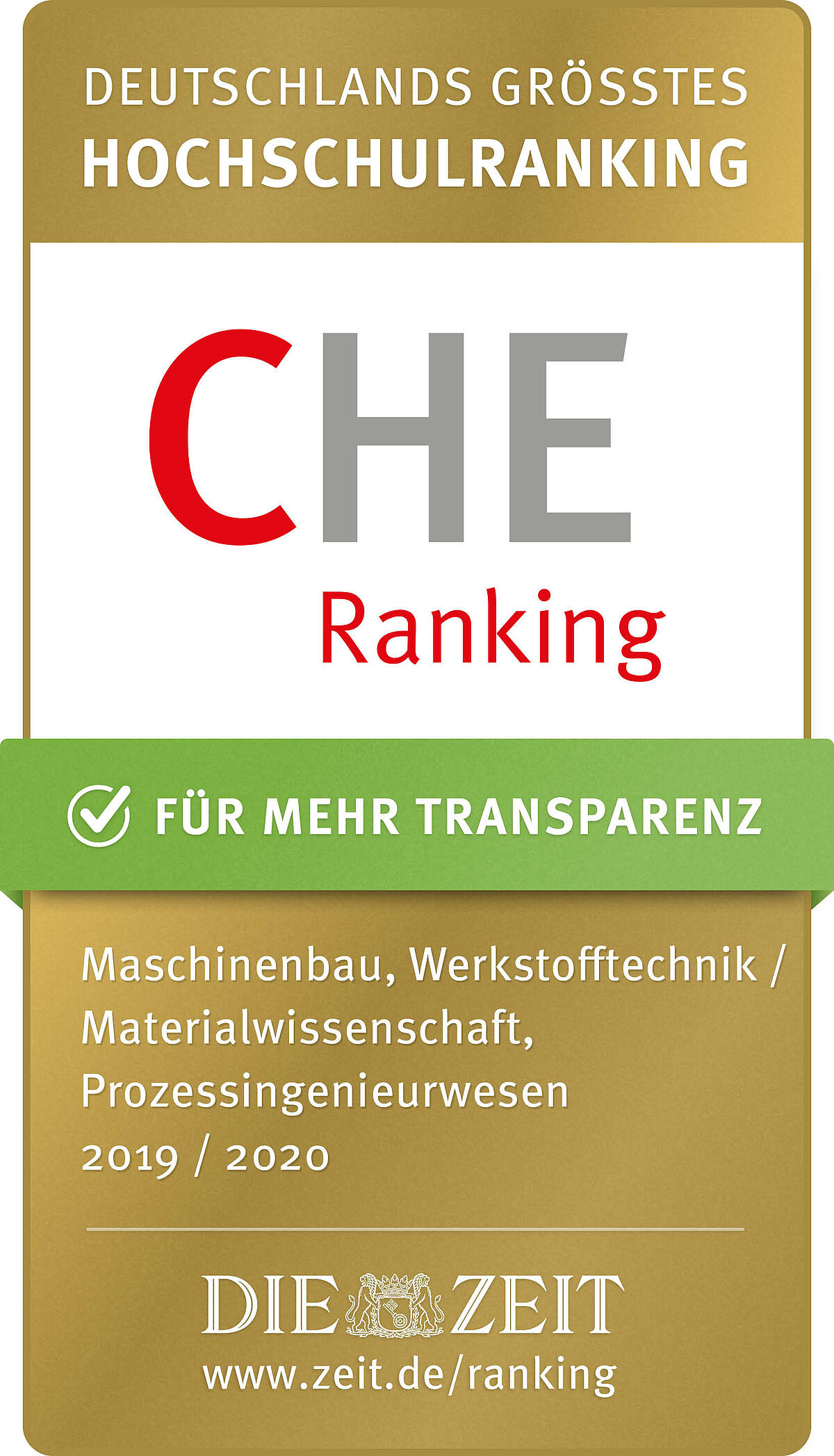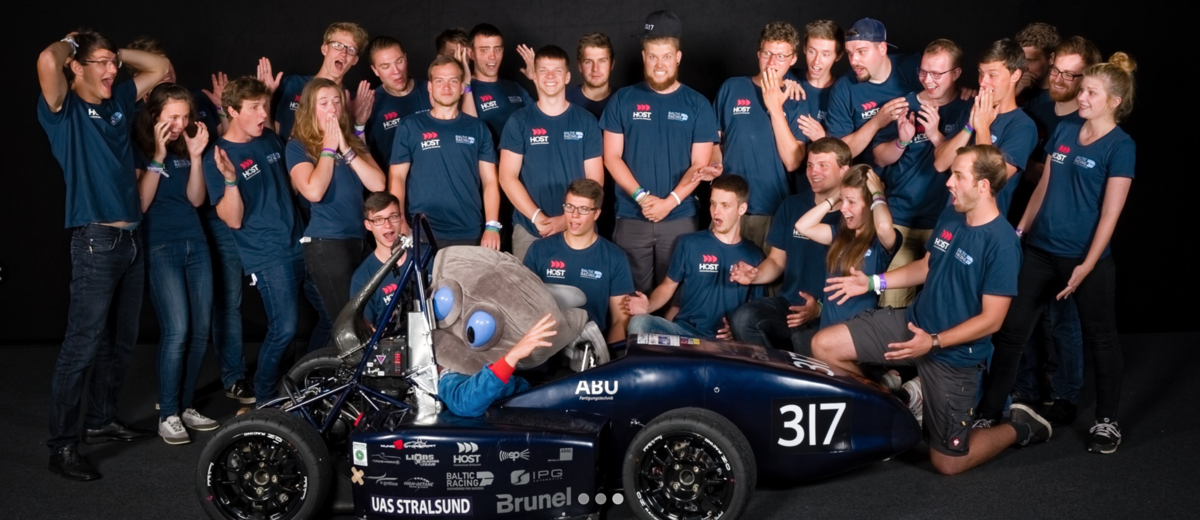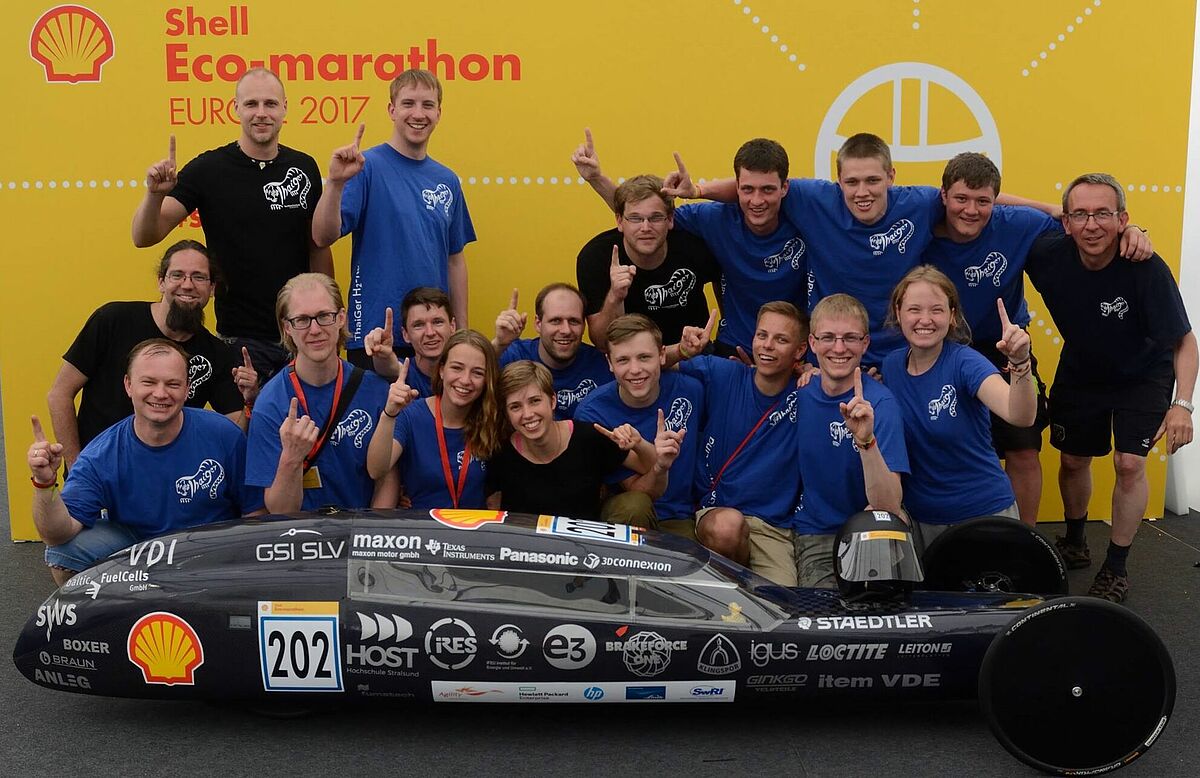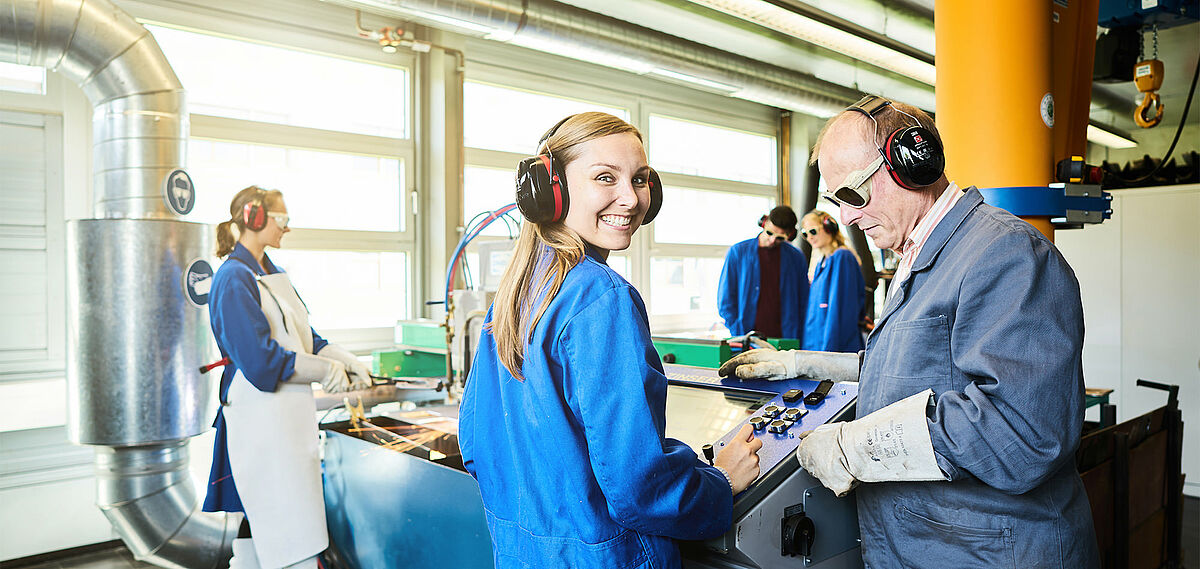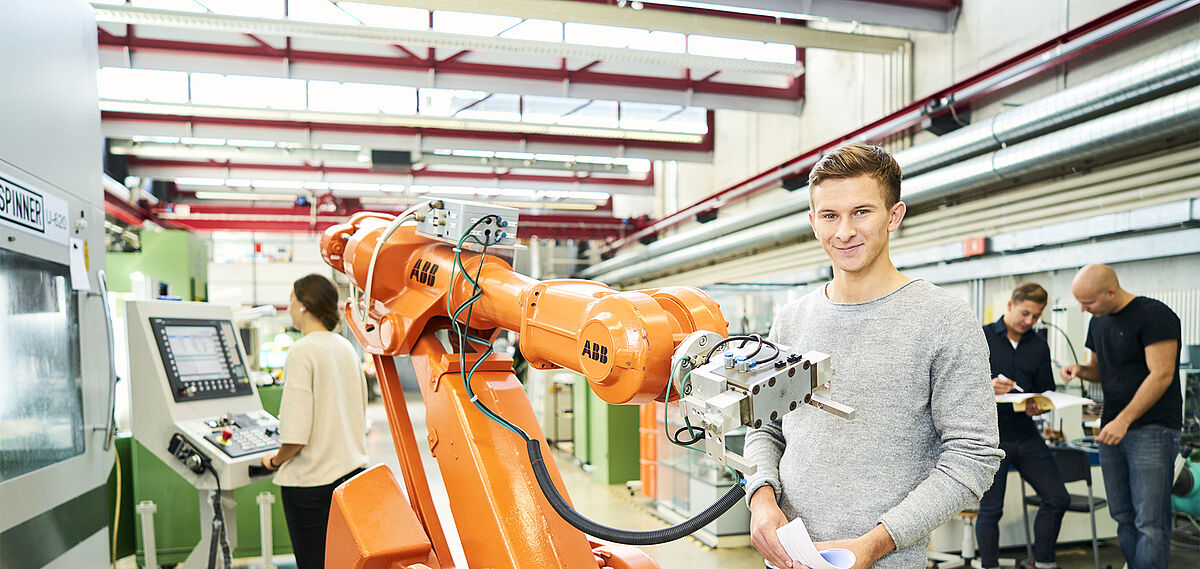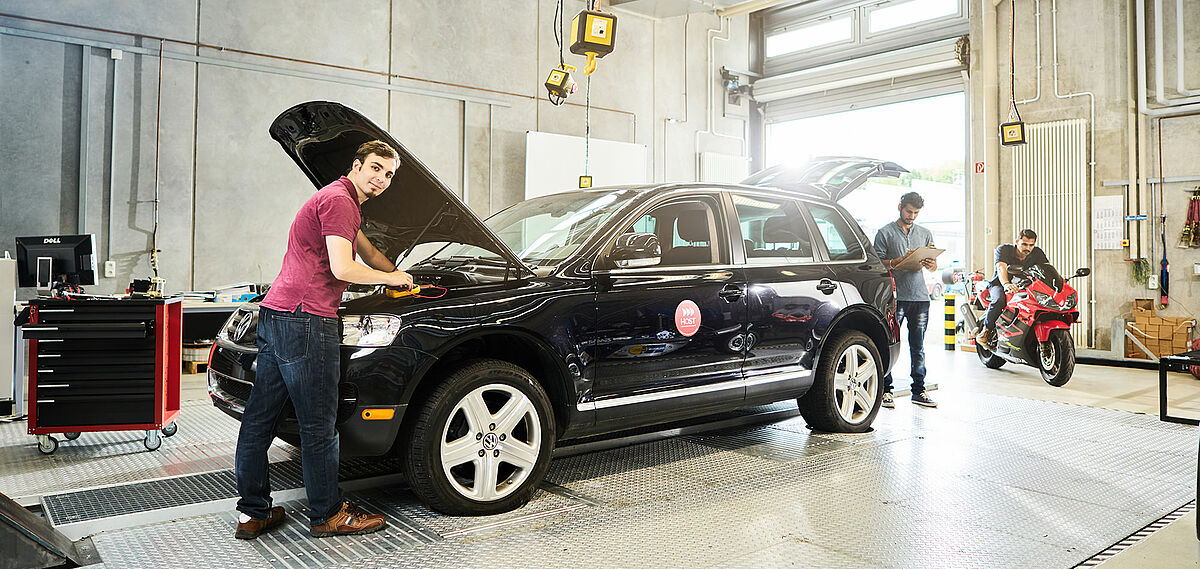Do you want to do more than just watch at the racetrack? ... Then become an expert in vehicle technology with the Motorsport Engineering degree programme! Because motorsport is the supreme discipline in the field of vehicle technology. You will learn how to fine-tune the aerodynamics of a vehicle, adapt it to different tracks, tune the chassis, optimise the performance of the engine, improve handling and reduce energy consumption. You can put this knowledge into practice in our three motorsport teams when designing the racing cars. Thanks to your expert knowledge in the field of vehicle technology, a degree in motorsport engineering will enable you to get your career off to a flying start at national and international companies - whether at car manufacturers with a sporting focus, engineering service providers or racing companies.
On your marks...
Motorsport is the supreme discipline in the field of vehicle technology. Many developments that are currently finding their way into series production could already be found in motorsport 20 to 30 years ago. These include, for example, carbon bodywork and active suspension technologies.
Ready?
Would you like to become part of a motorsport team yourself? Get involved, for example, with Baltic Racing, ThaiGer or the MariTeam racing team at our university and learn from your team colleagues from higher semesters at the same time. Your outstanding performance in these teams can even be recognised as an examination achievement.
Let's go!
You can expect exciting and up-to-date learning content as well as programme events such as excursions. Become a pioneer in the field of automotive engineering now!
| Study programme | Motorsport Engineering Bachelor (MSEB) |
| Faculty | Mechanical Engineering |
| Start | winter semester |
| Admission | admission-free |
| Duration | 7 semesters |
| Credit points | 210 |
| Degree | Bachelor of Engineering (B.Eng.) |
| Lecture language | German |
The degree programme was re-accredited by the Accreditation Council without conditions from 1 October 2024 to 30 September 2032.
Further information can be found here.
- Secondary school leaving certificate (Abitur or equivalent) or
- College leaving certificate from a technical college (Fachhochschulreife or equivalent) or
- Master’s certificate under the apprenticeship system (Meisterabschluss) or equivalent professional vocational training examination or
- Entrance examination
Information for foreign applicants: Incoming
This degree programme, offered for the first time in Germany, concludes with the Bachelor's examination as your first professional qualification. The standard period of study is seven semesters, including six theoretical semesters and a seventh practical semester. This practical semester begins with a practical phase of at least 12 weeks and ends with the Bachelor's thesis. At the start of the programme, you will acquire a solid grounding in engineering science in the subjects of physics, technical mechanics, thermodynamics, machine elements and design. The specialisation subjects in automotive engineering in the motorsport-oriented areas of chassis, bodywork, engine technology and engine application combine the basics in the second part of the degree course.
In addition to the technical qualification, laboratory tests and exercises in small working groups as well as the extensive project phases help to make the programme challenging.
In the final semester, the practical phase of at least 12 weeks and the Bachelor's thesis effectively prepare students for their future careers.
In addition to direct career entry, the Bachelor of Engineering degree also offers the opportunity to continue the university education in a thematically related Master's programme.
In this exceptional degree programme, you will acquire application-oriented basic engineering knowledge with topics from a classic automotive engineering degree programme. Your career goals are to work as an engineer in the fields of motorsport, sports production vehicles and racing-related engineering services as well as in the automotive supply industry. Although you specialise in the field of motorsport with this engineering degree, you will receive a sound basic education in mechanical engineering/vehicle technology.
Their professional field of activity is not limited to the field of motorsport. For example, racing companies, motor vehicle manufacturers with a sporting focus, suppliers to the automotive industry, engineering service providers, framework organisations and motor vehicle monitoring institutions are potential employers.
In laboratory experiments and exercises, you will deepen the knowledge acquired in the lectures through practical applications. You will train your ability to organise your own work, for example by completing an assignment on design issues, a two-semester project as part of our student racing teams and the practical phase.
The curriculum shown here is the curriculum for students from WS 21/22 onwards. The curriculum for students before WS21/22 can be found here.
In addition to the option of studying the Bachelor's degree programme in Motorsport Engineering full-time, the degree programme can also be studied as a course with in-depth practical experience or as a part-time course. This allows the degree programme to be flexibly tailored to personal needs for family and career.
Legislation
• Study plan (from winter semester 2021/22)
• Attention: Special study plan for winter semester 2024/25 and summer semester 2025
• Study plan (from winter semester 2025/ 26)
• Elective module (from winter semester 2025/ 26)
• Diploma Supplement (German, from winter semester 2025/ 26)
• Diploma Supplement (English, from winter semester 2025/ 26)
The MSEB course in the Faculty of Mechanical Engineering is still very young. The results of the CHE-Rankings of the very well-established, comparable Bachelor's degree course in Mechanical Engineering may therefore be of interest.
The dynamometer in the automotive engineering laboratory pushes vehicles to the mechanical limits of the material in laboratory tests - but you remain relaxed and watch the machinery at work. The numerous skills required of you in this and other laboratory tests build on the content of the previous lectures. This makes it easy for you to record and evaluate the measured values recorded in the experiment.
At the beginning of your studies, you will first have to carry out some basic experiments in the fields of physics and chemistry. In later semesters, the laboratory experiments in fluid mechanics, thermodynamics, reciprocating engines and automotive engineering will build on the knowledge gained here.
Outside of lectures and laboratory experiments, you will have the opportunity to put your theoretical knowledge and practical skills to the test. The university's racing stables are one of the places where you can do this:
Even though well over a century has passed since the invention of the automobile, research into motor vehicles is far from over.
The many research projects at Stralsund University of Applied Sciences are carried out in close cooperation with car manufacturers, regional suppliers and special vehicle developers as well as renowned research institutes.
· Tests on the transportation of sheet metal parts with Porsche-Leipzig GmbH
· Development of a chassis for passenger trailers Sightseeing Trains Rügen GmbH
· Investigation of the self-steering behavior of motorcycle combinations during braking
· Long-term load tests of self-propelled work machines with Hako GmbH

